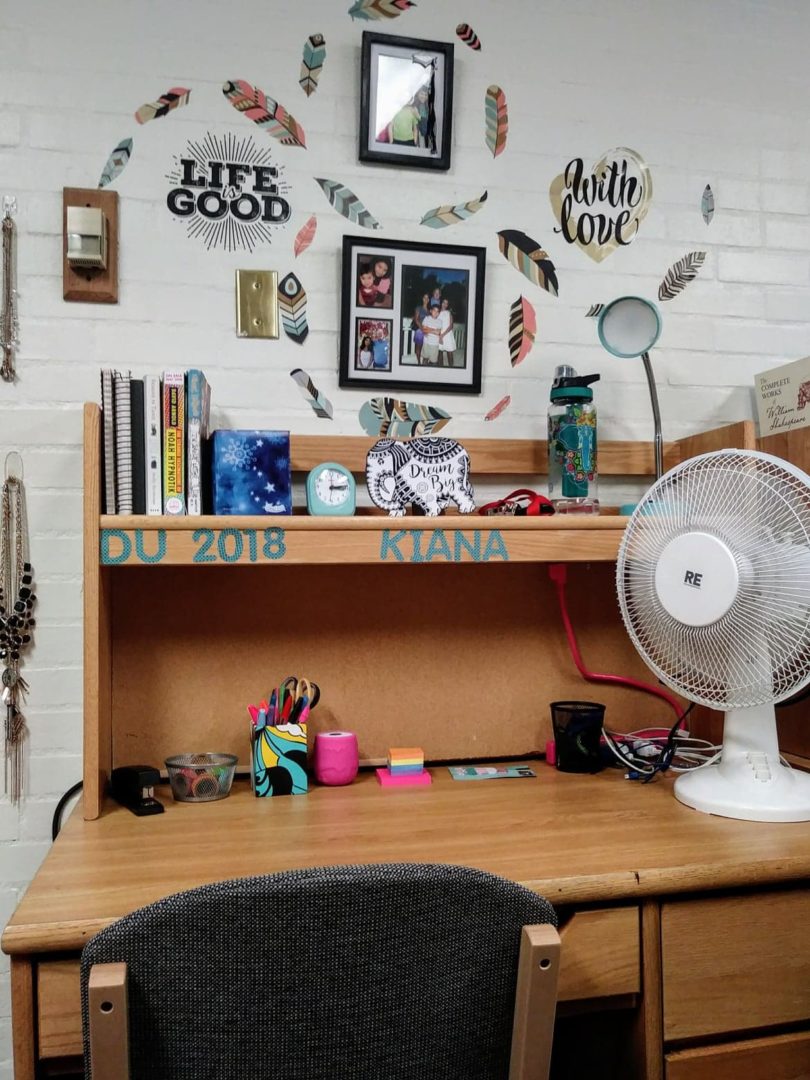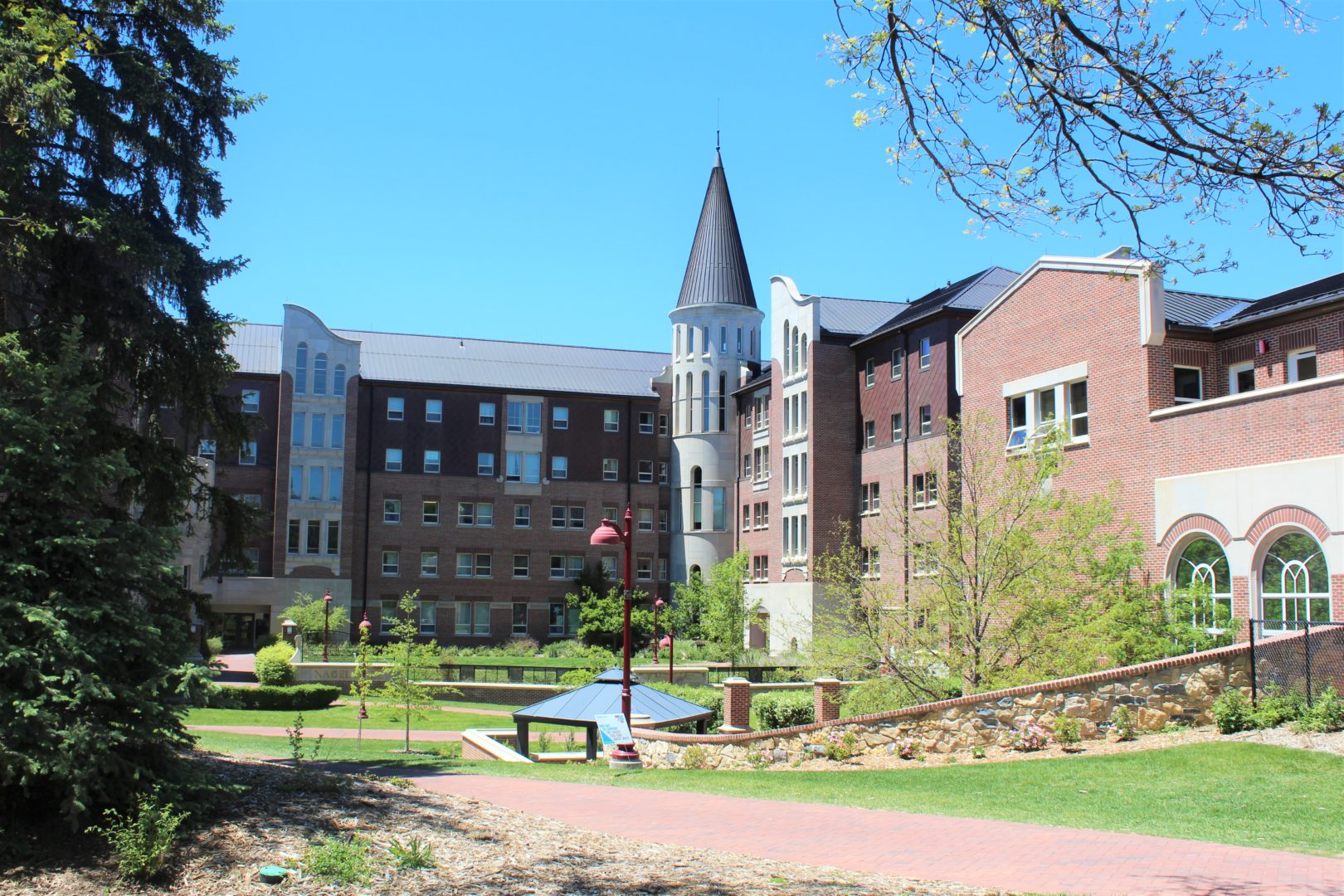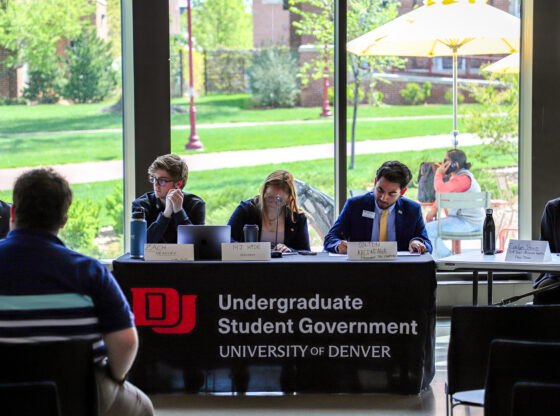Note: If students are facing financial insecurity regarding paying for the storage, they are encouraged to apply for the DU Student Assistance Fund.
There is an unofficial rite of passage at DU. It is a tradition that, without fail, any given group of friends will spend their spring break traveling around the American “west” and visiting parks like Arches National Park in Utah and Grand Canyon National Park in Arizona. Once finals end, DU students take full advantage of their break and prepare for one last ten-week sprint.
This year, it did not happen. Instead of packing their cars for camping, students who lived on campus had to make on-the-spot decisions about whether to rent storage units, bring their belongings home or leave things in their dorm rooms.
On March 12, HRE emailed students who lived on-campus, telling them to “pack all essential and valuable belongings [and to] pick up University supplied boxes from the front desk.” One student told the Clarion that “[HRE] told us we were coming back, but the language they used ensued panic like we were not coming back.”
In a survey conducted by the Clarion, 43 percent of the 46 respondents who lived on campus said it was implied that they would have the chance to return to DU. Another 35 percent of students said they were told to pack up as if they were leaving for good. RAs were unsure of what to tell their residents, leading to conflicting messaging between different floors or halls.
Patrick Naphin, a sophomore, said that about a week before DU announced their decision to hold classes online for the first two weeks, he and his friends had rented a storage unit to be proactive. However, he described his entire experience as “very stressful” and he “was not expecting to be kicked out two-thirds of the way through the school year.”
For students in the middle of preparing for final exams, the additional stress of having to move out made packing even more difficult.
“I was under the assumption we were still taking finals, which I just didn’t have the time to study for,” Naphin said.
Other students chose to use the boxes provided by DU to store their belongings. Each student was initially provided with five boxes, a mixture of large, medium and small. HRE was receiving daily shipments of boxes, but some students said that they either had to procure their own or wait until more became available.

Freshman Imani Lige-Crenshaw left DU before knowing she would have to pack up her belongings for spring break. Before HRE’s email was sent out, she felt relieved because “I was ahead of everything.” That changed quickly.
“It felt like no one knew what was going on or what to expect, even the RAs and people above them,” Lige-Crenshaw commented. “I ended up having to come back to pack up my room, which was a mess because rules were changing in the same few hours I was there.”
Freshman Greyson Koinzan said that “there were a lot of questions left unanswered because Housing was putting their plan together piece-by-piece. It was extremely frustrating to have to ask question after question and have none of them answered.”
“The move-out process was apocalyptic,” Koinzan continued. “Everyone was going insane. There weren’t enough resources to handle the emigration of entire dorms. No one had enough information, which ensued panic. There’s only so much you can do with a global pandemic, but the language that was used in all of the communication students received was either very fake-calming or panic-inducing.”
Students who elected to leave their belongings on campus received an email this week that they would have to pay for shipping their materials back. All of the options DU students were given went through one service—SquirrelBox. Students have the choice of either storing their boxes and items until fall quarter when their belongings can be returned to dorm rooms, or they can have them shipped to their current residences. Students can also elect to store their items through SquirrelBox until mid-May, instead of the entire summer, at which point students would return to DU to collect their items.
Students who left their belongings on campus have until April 14 to respond to a storage survey. If they do not respond in time, their belongings will automatically be stored, and student accounts will be billed.
Prices with SquirelBox start at $90 for pickup fees alone. If students have completely packed up their room, the fee is $90. If students have not packed up their rooms and SquirrelBox needs to move items into boxes, minimum pricing is $150 for rooms that are “80 percent – 95 percent packed.” At maximum pricing, it will be $150 an hour for packing rooms up entirely.
To store a medium box for a month, the cost is $40. A large box costs $50 per month. Students who left “small tier” items such as skis, snowboards, mattress toppers or suitcases will have to pay an additional $50 per month for storage. Those who have TVs or monitors that are not yet packed will pay a $30 fee and an extra $70 a month for storage. Storage for bikes through SquirrelBox costs $90 a month.
SquirrelBox ships through UPS. A medium box costs $60 to ship, while a large box costs $85. All boxes must be under 50 pounds for shipping. However, many students did not have any knowledge of this restriction while packing and have no way of knowing how much is packed into each box. To ship skis, snowboards or other similar items, SquirrelBox will charge the UPS rate along with an additional $10 charge. All boxes are each guaranteed $100 of insurance through SquirrelBox.
For a typical out-of-state DU student who left their bike and skiing or snowboarding equipment in the room and utilized the five boxes DU provided without needing any extras, the cost of leaving items behind quickly adds up and may exceed what they are able to spend. The Clarion staff calculated the costs a student would incur for storing their items for the whole summer or shipping their items home. These costs were calculated based on a PDF distributed to students.
The rough estimate for storing their items for five months is $340. To ship just their boxes home, the student would pay around $510.
For a personal SquirrelBox quote, students should visit the link that has been distributed through HRE. The pricing has been prorated through DU, and the quotes on SquirrelBox’s website are not the same as the pricing established for DU students.
For a storage unit in Denver, renting a unit about 5 feet by 5 feet can cost around $70 monthly. However, split between multiple students, students can pay about $15 a person.
“I’d rather pay monthly for a storage unit with a few add-ons than pay for these shipping costs,” said Naphin. “I prefer to have control over my items that are far more valuable to me than to the school. For those who left their belongings behind, DU is now essentially holding their stuff hostage. […] They never said anything about the fees [students] would pay to have to get their belongings back. […] Now, three weeks after we all left, the school is asking for people to pay to have their stuff sent back to them with costs that are quite expensive. I think that is ridiculous.”

“Honestly, I wish they would have told us way before because I live in the same state and could have arranged something to get all my things sooner and cheaper than this,” Lige-Crenshaw said.
Several students expressed their frustrations to the Clarion. When first moving out, students were essentially reassured their woes would be taken care of. In the survey, students who had left their items behind overwhelmingly stated neither the RAs or HRE staff had told them they would be accountable for the cost of storage or shipping. When asked if this would have changed their decision, many students responded they would have rented storage units themselves or packed everything to go home.
RAs and Desk Managers did not receive notice of how the school was handling student belongings. A source close to the situation told the Clarion that “RAs and Desk Managers did not receive a copy of the email sent out or any information on the shipping development.” Furthermore, they told the Clarion that desk staff and residents were not told that storage or shipping costs would be calculated by the size of the box, leading to students grabbing large boxes.
“I was under the impression that we would have options on what to do with our stuff if we went online. I would have liked to price-compare before deciding what to do with my things,” one student told the Clarion.
Koinzan had stored several boxes for friends, as she lived locally but had to leave some of her own belongings in Denver. When told she would have to pay to have her boxes shipped back or stored, Koinzan described the situation as “[…] unprecedented and unfair.” She continued, stating, “I understand that this is a difficult situation to deal with, but ample communication was necessary to ease the minds of many students.”
Another student told the Clarion they think it would be more secure to allow students in the area to move out their belongings themselves or appoint a proxy in the area—rather than having a company they are unfamiliar with move their belongings.
SquirrelBox is not considered an essential business, so the timeline for collection of student belongings has not yet been set in stone. Students who will need to store their belongings through SquirrelBox will be notified when packing begins and will be given the contact information of the movers. If students are facing financial insecurity regarding paying for the storage, they are encouraged to apply for the DU Student Assistance Fund.
The responses from the survey are available here.
The email that was sent out to students from DU is available here.
The SquirrelBox pricing PDF that was sent out to students is available here.
The calculations that the Clarion made for storage pricing is available here.











